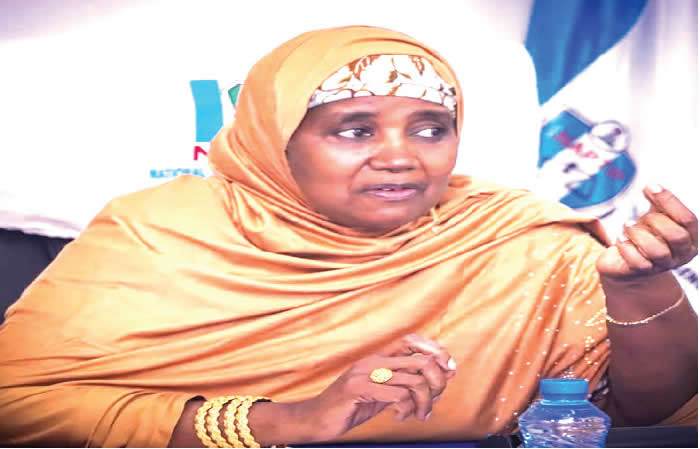The Repatriation of Nigerian Trafficking Victims: A Beacon of Hope in the Fight Against Modern Slavery
In a poignant display of resilience and the unwavering commitment to combat human trafficking, 78 Nigerian citizens, victims of a cruel and dehumanizing trade, were repatriated from Côte D’Ivoire and welcomed back to their homeland. The group, composed primarily of women and young girls, along with two men and three infants, arrived at Murtala Muhammed International Airport in Lagos, met by Binta Bello, Director-General of the National Agency for the Prohibition of Trafficking in Persons (NAPTIP). Their return signifies not only a victory against the perpetrators of this heinous crime but also a testament to the collaborative efforts between governments, agencies, and private organizations dedicated to eradicating modern slavery. The survivors’ stories, though harrowing, illuminate the deceptive tactics employed by traffickers and underscore the urgent need for continued vigilance and proactive measures to protect vulnerable individuals.
Bello, in her address, emphasized the agency’s resolute dedication to disrupting trafficking networks and bringing perpetrators to justice. She acknowledged the courage and resilience of the survivors, recognizing their return as a symbol of hope for countless others still trapped in the shadows of exploitation. The agency’s commitment extends beyond repatriation, encompassing comprehensive support services for the returnees, including counseling, skill acquisition training, and reintegration assistance. This holistic approach aims to empower the survivors to rebuild their lives and reclaim their futures, free from the trauma and stigma associated with their ordeal. Bello expressed gratitude towards the Nigerian government, Air Peace Airlines, and international partners for their invaluable support in facilitating the rescue mission and providing essential resources.
The heart-wrenching testimonies of the survivors reveal the insidious nature of human trafficking, often preying on the hopes and dreams of vulnerable individuals seeking better opportunities. One 24-year-old pregnant woman recounted how a supposed friend lured her with the promise of a well-paying supermarket job, only to be forced into prostitution upon arrival in Côte D’Ivoire. She was coerced into sexual exploitation under threat of violence and subjected to further abuse when she became pregnant, enduring physical assaults aimed at terminating her pregnancy. Her desperate plea for help highlights the life-threatening consequences of trafficking and the urgent need for safe and accessible reporting mechanisms for victims.
Another survivor, a 17-year-old girl, shared her experience of being deceived by a woman offering a lucrative restaurant job in Côte D’Ivoire. Along with six other girls, she was transported across borders under false pretenses, only to be abandoned in a forest and forced into commercial sex work. The horrific details of her ordeal, including multiple forced abortions and a long-term contraceptive injection, expose the brutal reality of exploitation and the callous disregard for human life often exhibited by traffickers. The disappearance and deaths of some of her fellow victims underscore the extreme dangers faced by those ensnared in these criminal networks.
These narratives paint a stark picture of the vulnerability of individuals seeking economic advancement and the manipulative tactics employed by traffickers to exploit their hopes and dreams. The promise of lucrative employment opportunities, coupled with the traffickers’ seemingly generous offers to cover travel expenses, creates a deceptive facade that masks the grim reality awaiting the victims. Upon arrival, these individuals are stripped of their freedom, subjected to coercion and violence, and forced into exploitative situations with little hope of escape. The physical and psychological trauma inflicted upon them can have lasting consequences, impacting their mental health, physical well-being, and future prospects.
The repatriation of these 78 Nigerian citizens serves as a powerful reminder of the persistent challenge of human trafficking and the importance of sustained efforts to combat this global scourge. NAPTIP’s commitment to pursuing justice, providing support services, and raising awareness is commendable, yet the fight requires a multi-faceted approach involving international cooperation, legislative action, and public engagement. By sharing their stories, these survivors have given voice to the voiceless and shed light on the dark underbelly of human trafficking. Their resilience and courage inspire continued action to dismantle trafficking networks, protect vulnerable individuals, and ultimately eradicate this modern form of slavery. The international community must work together to ensure that those who profit from the exploitation of others are held accountable and that all victims receive the support and resources they need to heal and rebuild their lives. The journey towards a world free from human trafficking requires sustained commitment, collaborative action, and unwavering resolve to protect the dignity and human rights of all individuals.














